Pabna University of Science and Technology (PUST)
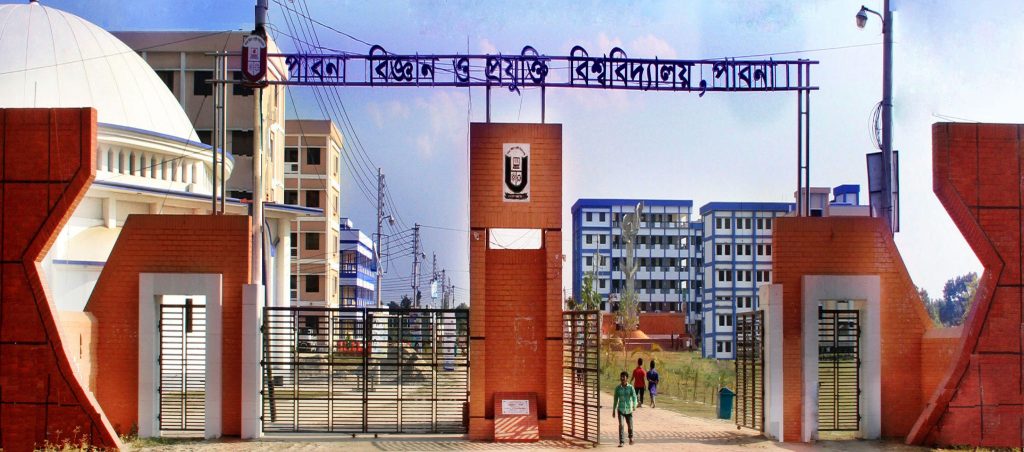
Pabna University of Science and Technology (PUST) About Pabna University of Science and Technology Pabna University of Science and Technology (PUST) is a prominent public research university located in Pabna, Bangladesh. Established in 2008, PUST is dedicated to providing high-quality education and fostering research in science, technology, and engineering fields. The university aims to develop skilled professionals and researchers who can contribute to national and global advancements. PUST offers undergraduate, postgraduate, and doctoral programs through its faculties, including Engineering, Science, Business Administration, and Arts. The university emphasizes academic excellence, innovation, and practical learning, with state-of-the-art laboratories and research facilities. It also promotes student engagement in co-curricular activities and community development. With a growing reputation for research, PUST is committed to becoming a leading institution in Bangladesh, focused on creating a knowledge-based society. Its mission includes fostering a strong culture of science and technology education, contributing to the socio-economic development of the country. Basic Info Official Name – Pabna University of Science and Technology Establish Year- 2008 Official Website Link – pust.ac.bd Official Facebook Link- Address- Pabna University of Science and Technology, Pabna Pabna University of Science and Technology Faculties, Departments Here is a table outlining the faculties and departments at Pabna University of Science and Technology (PUST): Faculty Departments Faculty of Science – Department of Mathematics – Department of Physics – Department of Chemistry – Department of Computer Science & Engineering – Department of Statistics Faculty of Engineering – Department of Civil Engineering – Department of Electrical & Electronic Engineering – Department of Mechanical Engineering – Department of Computer Science & Engineering Faculty of Business Studies – Department of Business Administration – Department of Accounting and Information Systems Faculty of Social Science – Department of Sociology – Department of Economics – Department of Political Science – Department of Law Faculty of Arts – Department of Bengali – Department of English – Department of History – Department of Philosophy Faculty of Life Science – Department of Environmental Science – Department of Biotechnology Faculty of Education – Department of Education This table provides an overview of the faculties and their respective departments at PUST. Let me know if you’d like more details! Pabna University of Science & Technology Courses, Duration, and Fees Here’s the information about Pabna University of Science & Technology (PUST) courses, duration, and fees in a table format: Faculty Programs Duration Fees (Approx.) Faculty of Science B.Sc. in Mathematics 4 years BDT 25,000 – 30,000/year B.Sc. in Physics 4 years BDT 25,000 – 30,000/year B.Sc. in Chemistry 4 years BDT 25,000 – 30,000/year B.Sc. in Computer Science & Engineering 4 years BDT 30,000 – 35,000/year B.Sc. in Statistics 4 years BDT 25,000 – 30,000/year Faculty of Engineering B.Sc. in Civil Engineering 4 years BDT 40,000 – 45,000/year B.Sc. in Electrical & Electronic Engineering 4 years BDT 40,000 – 45,000/year B.Sc. in Mechanical Engineering 4 years BDT 40,000 – 45,000/year Faculty of Business Studies BBA (Bachelor of Business Administration) 4 years BDT 30,000 – 35,000/year B.Sc. in Accounting & Information Systems 4 years BDT 30,000 – 35,000/year Faculty of Social Science BA in Sociology 4 years BDT 25,000 – 30,000/year BA in Economics 4 years BDT 25,000 – 30,000/year BA in Political Science 4 years BDT 25,000 – 30,000/year LLB (Bachelor of Law) 4 years BDT 25,000 – 30,000/year Faculty of Arts BA in Bengali 4 years BDT 25,000 – 30,000/year BA in English 4 years BDT 25,000 – 30,000/year BA in History 4 years BDT 25,000 – 30,000/year BA in Philosophy 4 years BDT 25,000 – 30,000/year Faculty of Life Science B.Sc. in Environmental Science 4 years BDT 25,000 – 30,000/year B.Sc. in Biotechnology 4 years BDT 30,000 – 35,000/year Faculty of Education B.Ed. (Bachelor of Education) 4 years BDT 25,000 – 30,000/year Postgraduate Programs M.Sc. in Mathematics 2 years BDT 30,000 – 35,000/year M.Sc. in Physics 2 years BDT 30,000 – 35,000/year M.Sc. in Chemistry 2 years BDT 30,000 – 35,000/year M.Sc. in Computer Science & Engineering 2 years BDT 35,000 – 40,000/year M.Sc. in Statistics 2 years BDT 30,000 – 35,000/year M.Sc. in Civil Engineering 2 years BDT 40,000 – 45,000/year M.Sc. in Electrical & Electronic Engineering 2 years BDT 40,000 – 45,000/year M.Sc. in Mechanical Engineering 2 years BDT 40,000 – 45,000/year MBA (Master of Business Administration) 2 years BDT 35,000 – 40,000/year M.Sc. in Accounting & Information Systems 2 years BDT 35,000 – 40,000/year MA in Sociology 2 years BDT 30,000 – 35,000/year MA in Economics 2 years BDT 30,000 – 35,000/year MA in Political Science 2 years BDT 30,000 – 35,000/year MA in Bengali 2 years BDT 30,000 – 35,000/year MA in English 2 years BDT 30,000 – 35,000/year MA in History 2 years BDT 30,000 – 35,000/year MA in Philosophy 2 years BDT 30,000 – 35,000/year Note: The fees mentioned are approximate and may vary. Additional costs for registration, exams, and accommodation may apply. The duration for undergraduate programs is typically 4 years, while for postgraduate programs it is 2 years. For more specific details or changes in fees, please refer to the official website of PUST or contact the university directly. PUST University Admission Process Here is the admission process for Pabna University of Science and Technology (PUST) presented in a table format: Step Details 1. Eligibility Criteria – Applicants must meet the minimum academic requirements for the specific program. – For undergraduate programs: Higher Secondary Certificate (HSC) or equivalent with specific subject requirements. – For postgraduate programs: Relevant undergraduate degree. 2. Application Form – Applicants need to fill out an online application form. – The form can be found on the official PUST admission portal. 3. Admission Test – For most programs, an admission test is required. – The test may include multiple-choice questions or
Jashore University of Science & Technology (JUST)
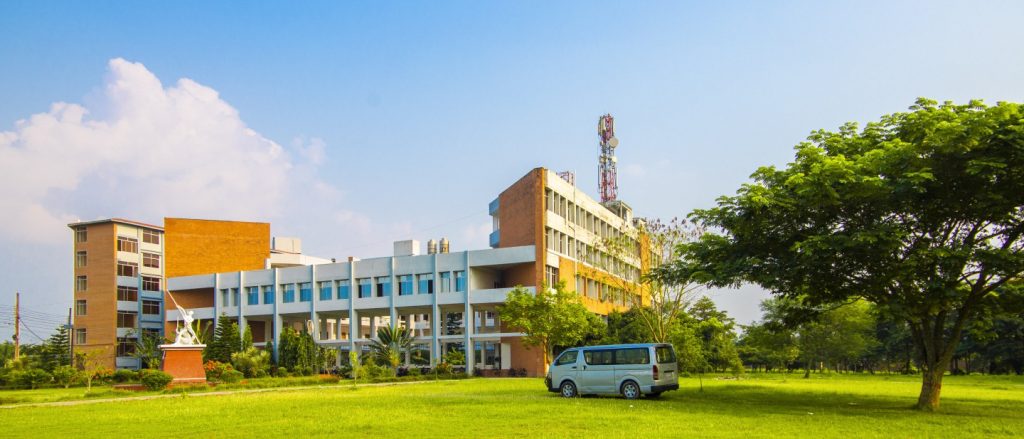
Jashore University of Science & Technology (JUST) About Jashore University of Science & Technology Jashore University of Science and Technology (JUST), located in Jashore, Bangladesh, is a leading public institution dedicated to advancing education and research in science, engineering, and technology. Established in 2007, JUST is committed to nurturing innovation and producing skilled professionals to meet the demands of a dynamic global workforce. The university comprises various faculties, including Engineering and Technology, Biological Science and Technology, Physical Science, Business Studies, and Health Science, offering undergraduate, postgraduate, and doctoral programs. JUST emphasizes research-driven education, encouraging students and faculty to engage in cutting-edge projects that address national and global challenges. With state-of-the-art laboratories, a vibrant campus life, and an emphasis on academic excellence, JUST has quickly gained recognition as a hub of innovation and learning. Its strategic location near the Khulna region also facilitates collaborations with industries and research organizations, enhancing opportunities for students and researchers alike. Basic Info Official Name – Jashore University of Science & Technology Establish Year- 2007 Official Website Link – just.edu.bd Official Facebook Link- Address- Jashore University of Science and Technology (JUST), Jashore – 7408 JUST University Faculties, Departments Faculty Departments Faculty of Engineering and Technology Computer Science and Engineering (CSE) Electrical and Electronic Engineering (EEE) Chemical Engineering (ChE) Industrial and Production Engineering (IPE) Petroleum and Mining Engineering (PME) Faculty of Biological Science and Technology Microbiology Genetic Engineering and Biotechnology (GEBT) Fisheries and Marine Bioscience Environmental Science and Technology Faculty of Physical Science Physics Chemistry Mathematics Faculty of Business Studies Accounting and Information Systems (AIS) Management Faculty of Health Science Pharmacy Public Health and Informatics (PHI) Biomedical Engineering (BME) Faculty of Science Statistics Biotechnology and Genetic Engineering This table outlines the faculties and their corresponding departments at Jashore University of Science and Technology (JUST). JUST University Courses, Duration and Fee Program Duration Approximate Fees (BDT) Bachelor of Science in Computer Science & Engineering (CSE) 4 years 25,000 – 30,000 per semester Bachelor of Science in Electrical and Electronic Engineering (EEE) 4 years 25,000 – 30,000 per semester Bachelor of Science in Chemical Engineering (ChE) 4 years 25,000 – 30,000 per semester Bachelor of Science in Industrial & Production Engineering (IPE) 4 years 25,000 – 30,000 per semester Bachelor of Science in Petroleum & Mining Engineering (PME) 4 years 25,000 – 30,000 per semester Bachelor of Science in Microbiology 4 years 20,000 – 25,000 per semester Bachelor of Science in Genetic Engineering and Biotechnology (GEBT) 4 years 20,000 – 25,000 per semester Bachelor of Science in Fisheries and Marine Bioscience 4 years 20,000 – 25,000 per semester Bachelor of Science in Environmental Science and Technology 4 years 20,000 – 25,000 per semester Master’s Programs (Various Disciplines) 1.5 – 2 years 30,000 – 40,000 per semester Ph.D. Programs (Various Disciplines) 3-4 years 40,000 – 50,000 per semester Notes: Fees may vary slightly based on program specifics and university policy. The figures above are approximations and can change based on institutional decisions. Scholarships and financial aid may be available for eligible students. This table provides an overview of the courses, duration, and fees at JUST. For more specific information, it is advisable to check the university’s official website or contact the admissions office. JUST University Admission Process The admission process at Jessore University of Science and Technology (JUST) follows a centralized system under the Bangladesh Agricultural Universities Association (BAUA). Here is a step-by-step guide: 1. Eligibility Criteria Academic Requirements: Minimum GPA of 4.00 in both SSC and HSC or equivalent examinations. Candidates must have a science background with Biology, Chemistry, Physics, and Mathematics. Additional Criteria: Specific requirements may vary for different departments. 2. Admission Test JUST follows a centralized admission test for all public agricultural and technological universities in Bangladesh. The test is organized by Bangladesh Agricultural Universities Association (BAUA). The admission test typically covers Biology, Chemistry, Physics, Mathematics, and English. 3. Application Process Interested candidates must apply online through the BAUA admission portal. Upload necessary documents, including transcripts and photographs, and pay the application fee online. Application Fee: Approximately BDT 1,000 – 1,200 (subject to change). 4. Selection Criteria Merit-based selection based on a combination of: Admission Test Results: 60% SSC Results: 15% HSC Results: 25% Only the top-ranking students will be selected based on this merit score. 5. Admission Confirmation Shortlisted candidates must pay the admission fee and confirm their seat. Document Verification: Candidates will need to submit original documents for verification at the university during the admission process. 6. Session Start The academic session generally begins in January/February each year. Important Notes: Candidates are advised to regularly check the official JUST and BAUA websites for updates on admission deadlines and any changes in the process. Scholarships and financial aid may be available for eligible students. This process ensures a fair and transparent selection of candidates for various programs at JUST. JUST University Campus Facilities Library Laboratories Hostel Computer Lab Auditorium Play Ground Medical Cultural Green Environment Transport Key Points JUST University Admission FAQs JUST University Admission Table of Contents Related Post
Sylhet Agricultural University
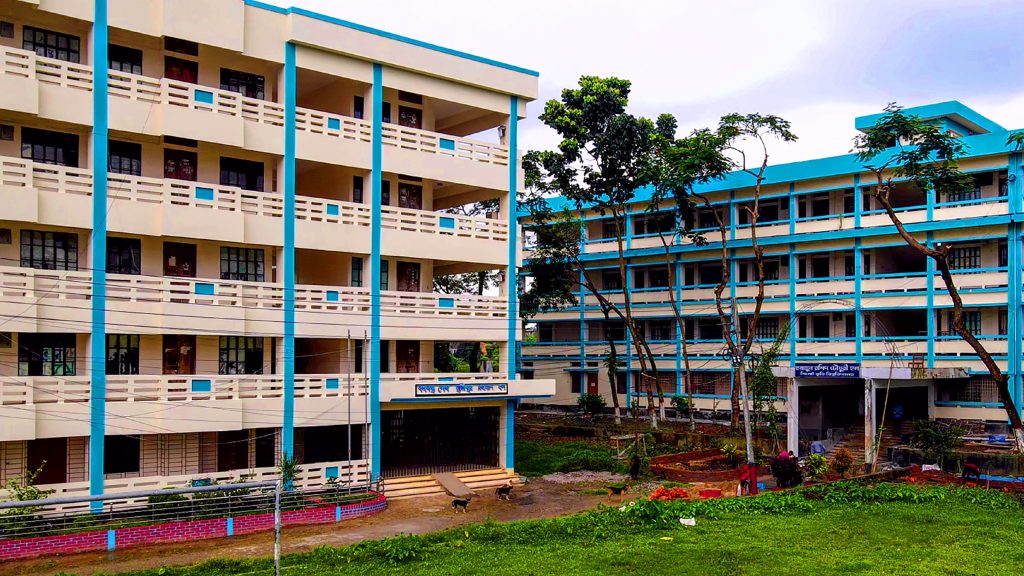
Sylhet Agricultural University About Sylhet Agricultural University Sylhet Agricultural University (SAU), located in Sylhet, Bangladesh, is a prominent institution dedicated to agricultural education, research, and development. Established in 2006, SAU plays a pivotal role in fostering innovation in agriculture, fisheries, veterinary science, and food technology, addressing the country’s growing need for agricultural advancements. The university comprises six faculties: Veterinary, Animal and Biomedical Sciences; Agriculture; Fisheries; Agricultural Economics and Business Studies; Agricultural Engineering and Technology; and Food Science and Technology. These faculties offer undergraduate and postgraduate programs, equipping students with practical knowledge and research skills. SAU is renowned for its vibrant academic environment, cutting-edge research facilities, and collaborations with national and international organizations. The university is committed to producing skilled graduates who contribute to sustainable agriculture, rural development, and food security. Located in a scenic region, SAU offers a conducive learning atmosphere for students passionate about agricultural sciences. Basic Info Official Name – Sylhet Agricultural University Establish Year- 2006 Official Website Link – www.sau.ac.bd Official Facebook Link- Address- Sylhet Agricultural University, 01 No. Eco Park Road, Tilaghor, Sylhet-3100, Bangladesh Sylhet Agricultural University Faculties, Departments Faculty Departments Faculty of Veterinary, Animal & Biomedical Sciences Anatomy and Histology, Physiology, Pathology, Pharmacology and Toxicology, Microbiology and Immunology, Parasitology, Medicine, Surgery and Theriogenology, Animal Science and Nutrition Faculty of Agriculture Agronomy, Horticulture, Soil Science, Crop Botany and Tea Production Technology, Plant Pathology, Genetics and Plant Breeding, Agricultural Extension Education, Entomology Faculty of Fisheries Aquaculture, Fish Biology and Genetics, Fisheries Resource Management, Aquatic Environment and Climate Resilience, Fish Processing and Quality Control Faculty of Agricultural Economics & Business Studies Agricultural Economics, Agricultural Statistics, Agribusiness Management, Rural Sociology Faculty of Agricultural Engineering & Technology Farm Power and Machinery, Irrigation and Water Management, Food Engineering and Technology, Computer Science and Mathematics Faculty of Food Science & Technology Food Chemistry and Quality Assurance, Food Microbiology, Food Processing and Preservation, Nutrition and Food Science This tabular format provides a concise overview of SAU’s faculties and their respective departments. Sylhet Agricultural University Courses, Duration, and Fees Program Duration Approximate Fees (BDT) Bachelor of Science in Agriculture (B.Sc. Ag.) 4 years 25,000 – 30,000 (per semester) Bachelor of Science in Veterinary Science & Animal Husbandry (DVM) 5 years 30,000 – 35,000 (per semester) Bachelor of Science in Fisheries (B.Sc. Fisheries) 4 years 25,000 – 30,000 (per semester) Bachelor of Science in Agricultural Economics (B.Sc. Ag. Econ.) 4 years 25,000 – 30,000 (per semester) Bachelor of Science in Agricultural Engineering & Technology (B.Sc. Agri. Engg.) 4 years 25,000 – 30,000 (per semester) Bachelor of Science in Food Science & Technology (B.Sc. FST) 4 years 25,000 – 30,000 (per semester) Master’s Programs (Various Disciplines) 1.5 – 2 years 30,000 – 40,000 (per semester) Ph.D. Programs (Various Disciplines) 3-4 years 40,000 – 50,000 (per semester) Notes: Fees are indicative and may vary depending on government policy and program specifics. Undergraduate programs include lab, research, and practical fees, which may slightly adjust the total cost. SAU provides scholarships and financial aid to eligible students to reduce costs. This table offers a clear and concise overview of the courses, duration, and fees at SAU. For precise details, visiting the university’s official website or contacting the administration is recommended. Sylhet Agricultural University Admission Process Sylhet Agricultural University (SAU) conducts its admission process as part of a centralized system for public agricultural universities in Bangladesh, under the Bangladesh Agricultural Universities Association (BAUA). Here are the key steps: 1. Eligibility Criteria Academic Requirements: Minimum GPA of 4.00 in both SSC and HSC. Must have a science background with Biology, Chemistry, Physics, and Mathematics. Additional Criteria: Set by BAUA, which may vary slightly each year. 2. Admission Test A unified admission test is conducted for all agricultural universities. The test covers subjects such as Biology, Chemistry, Physics, Mathematics, and English. 3. Application Process Apply online through the BAUA admission portal. Submit necessary documents, including academic certificates, transcripts, and photographs. Pay the application fee (approximately BDT 1,000 – 1,200) online. 4. Selection Criteria Admission is based on a merit score calculated as follows: Admission test results: 60% HSC results: 25% SSC results: 15% 5. Admission Confirmation Shortlisted candidates must pay the admission fee to confirm their seat. Original documents are verified at the university during the admission process. 6. Session Start The academic session typically begins in January/February each year. Important Notes Candidates are advised to stay updated via the official BAUA or SAU website for application deadlines, test dates, and detailed instructions. Scholarships and financial aid are available for eligible students. This streamlined admission process ensures fairness and transparency for all applicants. Sylhet Agricultural University Campus Facilities Library Laboratories Hostel Computer Lab Auditorium Play Ground Medical Cultural Green Environment Transport Key Points Sylhet Agricultural University Admission FAQs Sylhet Agricultural University Admission Table of Contents Related Post
Chittagong Veterinary and Animal Sciences University
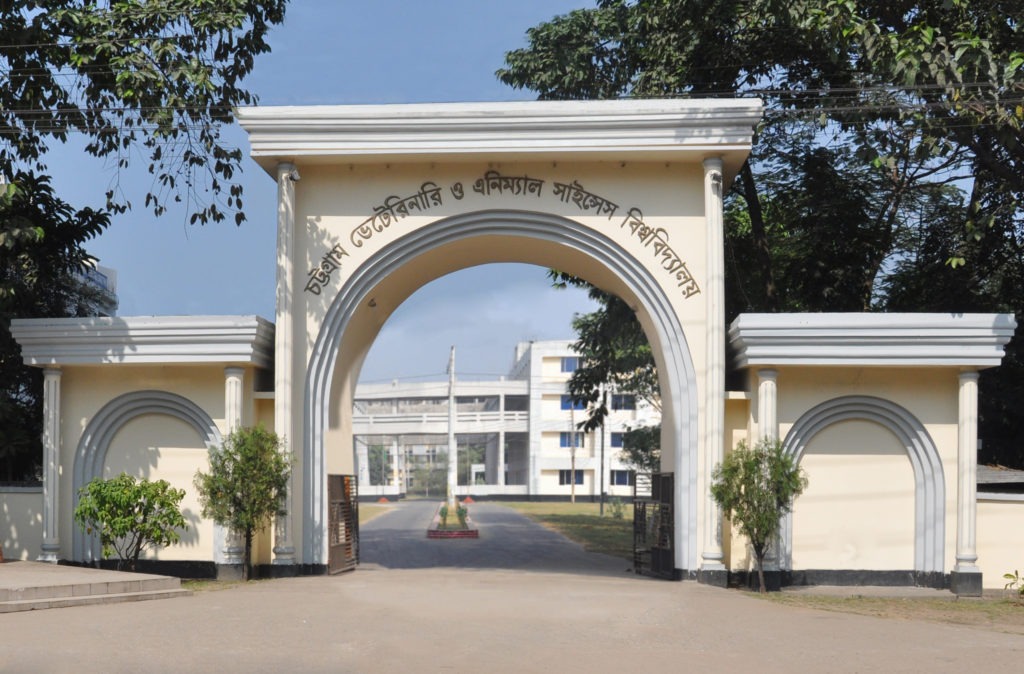
Chittagong Veterinary and Animal Sciences University Chittagong Veterinary and Animal Sciences University About Chittagong Veterinary and Animal Sciences University (CVASU) is a leading public university in Bangladesh dedicated to advancing veterinary education, research, and services. Established in 2006 in Chattogram, CVASU plays a vital role in addressing the challenges in animal health, welfare, and production. The university offers undergraduate, postgraduate, and doctoral programs in Veterinary Medicine, Food Science, and Fisheries, blending academic excellence with practical training. Its state-of-the-art facilities include animal hospitals, diagnostic labs, research farms, and modern classrooms, ensuring students gain hands-on experience and develop industry-relevant skills. CVASU is committed to sustainable development through innovations in animal sciences, aquaculture, and public health. It actively engages in research, extension services, and collaborations with national and international institutions. With its focus on quality education, research excellence, and societal impact, CVASU prepares students to contribute significantly to the veterinary and agricultural sectors in Bangladesh and beyond. Basic Info Official Name – Chittagong Veterinary and Animal Sciences University Establish Year- 2006 Official Website Link – cvasu.ac.bd Official Facebook Link- Address- Khulshi, 4225, Chittagong Chittagong Veterinary and Animal Sciences University (CVASU): Faculties and Departments Faculty Departments Faculty of Veterinary Medicine (FVM) – Department of Anatomy and Histology – Department of Physiology, Biochemistry, and Pharmacology – Department of Pathology and Parasitology – Department of Medicine and Surgery – Department of Microbiology and Veterinary Public Health – Department of Animal Science and Nutrition Faculty of Food Science and Technology (FFST) – Department of Applied Chemistry and Chemical Technology – Department of Food Processing and Engineering – Department of Food Microbiology – Department of Food Safety and Quality Management Faculty of Fisheries – Department of Aquaculture – Department of Fisheries Biology and Genetics – Department of Marine Bio-Resources Science – Department of Fish Processing and Quality Control These faculties and their respective departments form the core academic structure of CVASU, offering specialized programs in veterinary science, food science, and fisheries. Chittagong Veterinary and Animal Sciences University (CVASU): Courses, Duration, and Fees Course Duration Fees (Approx.) Undergraduate Courses Bachelor of Veterinary Science (BVSc & AH) 5 years (including 1-year internship) – Admission Fee: BDT 15,000–20,000 – Tuition Fee: BDT 15,000–20,000 per semester – Laboratory Fees: BDT 2,000–3,000 per semester – Hostel Fees: BDT 1,500–2,000 per semester Bachelor of Science in Food Science & Technology (BSc FST) 4 years – Admission Fee: BDT 15,000–20,000 – Tuition Fee: BDT 12,000–15,000 per semester – Laboratory Fees: BDT 2,000–3,000 per semester – Hostel Fees: BDT 1,500–2,000 per semester Bachelor of Science in Fisheries (BSc Fisheries) 4 years – Admission Fee: BDT 15,000–20,000 – Tuition Fee: BDT 12,000–15,000 per semester – Laboratory Fees: BDT 2,000–3,000 per semester – Hostel Fees: BDT 1,500–2,000 per semester Postgraduate Courses Master of Science (MSc) in Veterinary Sciences 1.5–2 years – Admission Fee: BDT 20,000–25,000 – Tuition Fee: BDT 10,000–15,000 per semester Master of Science (MSc) in Food Science 1.5–2 years – Admission Fee: BDT 20,000–25,000 – Tuition Fee: BDT 10,000–15,000 per semester Master of Science (MSc) in Fisheries 1.5–2 years – Admission Fee: BDT 20,000–25,000 – Tuition Fee: BDT 10,000–15,000 per semester PhD Courses PhD in Veterinary Sciences 3–5 years – Research Fee: BDT 50,000–70,000 annually PhD in Food Science 3–5 years – Research Fee: BDT 50,000–70,000 annually PhD in Fisheries 3–5 years – Research Fee: BDT 50,000–70,000 annually Additional Costs Application Fee: Approximately BDT 1,000 (paid via mobile banking). Examination Fees: Varies depending on the course and semester. CVASU offers a comprehensive academic experience with practical training and research opportunities, all at affordable rates for students in veterinary, food science, and fisheries disciplines. CVASU University Admission Process Stage Details Eligibility Criteria Undergraduate: – SSC & HSC (or equivalent) with minimum GPA requirements: – Science Group: Combined GPA of 8.00. Postgraduate: – Bachelor’s degree in a relevant field with a minimum CGPA of 2.50 out of 4.00. – PhD candidates must have a master’s degree and research experience. Application Process – Visit the official admission portal: cvasu.ac.bd. – Complete the online application form. – Pay the application fee (Approx. BDT 1,000) via mobile banking (bKash, Nagad, Rocket). Admission Test – Unit-based written exam covering Science (Physics, Chemistry, Biology, Mathematics), English, and General Knowledge. – Postgraduate candidates may also need an interview or research proposal presentation. Merit List – Based on combined scores from SSC, HSC, and the admission test. – Separate lists for quotas (freedom fighters, indigenous, etc.). Enrollment – Shortlisted candidates verify documents, pay the admission fee, and complete registration. Important Dates – Admission Circular: October–November. – Application Deadline: 2–3 weeks after the circular. – Admission Tests: November–December. Required Documents – Academic certificates (SSC, HSC, or equivalent). – Mark sheets/transcripts. – Recent passport-sized photos. – National ID card or birth certificate. – Payment receipt for application fee. Quota System – Reserved seats for freedom fighter descendants, indigenous students, and physically challenged individuals. Tips for Success Prepare thoroughly for unit-specific admission tests. Ensure all documents are accurate and submitted on time. Regularly check the CVASU website for updates and notices. CVASU University Campus Facilities Library Laboratories Hostel Computer Lab Auditorium Play Ground Medical Cultural Green Environment Transport Key Points CVASU University Admission FAQs CVASU University Admission Table of Contents Related Post
Jatiya Kabi Kazi Nazrul Islam University
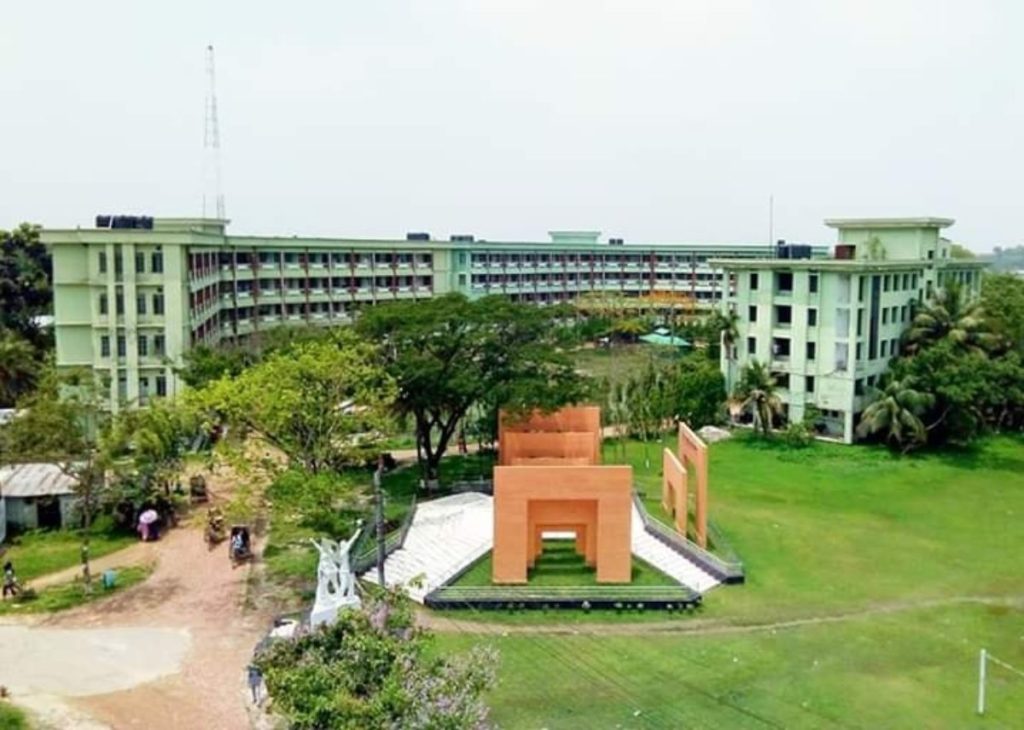
Jatiya Kabi Kazi Nazrul Islam University Jatiya Kabi Kazi Nazrul Islam University About Jatiya Kabi Kazi Nazrul Islam University (JKKNIU), located in Trishal, Mymensingh, is a premier public university in Bangladesh named after the country’s national poet, Kazi Nazrul Islam. Established in 2006, the university is dedicated to fostering creativity, innovation, and intellectual growth in alignment with the poet’s legacy of cultural and educational enrichment. JKKNIU offers undergraduate, postgraduate, and doctoral programs across diverse disciplines, including Arts, Social Science, Science, Business, and Engineering. With a picturesque campus surrounded by greenery, the university provides a vibrant and inspiring environment for academic and extracurricular activities. Equipped with modern facilities like well-furnished classrooms, laboratories, libraries, and ICT support, JKKNIU emphasizes both academic excellence and holistic development. The university also encourages cultural and social engagement through various clubs and events. JKKNIU remains committed to nurturing future leaders and professionals while preserving the spirit of Nazrul’s humanism and inclusivity. Basic Info Official Name – Jatiya Kabi Kazi Nazrul Islam University Establish Year- 2006 Official Website Link – jkkniu.edu.bd Official Facebook Link- Address – Trishal, Mymensingh, Bangladesh JKKNIU University Faculties, Departments, Courses, Duration, and Fees Jatiya Kabi Kazi Nazrul Islam University (JKKNIU) offers a diverse range of academic programs through its well-structured faculties and departments. Below is an overview of the faculties, departments, courses, duration, and fee structure. Faculties and Departments 1. Faculty of Arts Departments: Bangla English Language and Literature Music Fine Arts Theatre and Performance Studies 2. Faculty of Social Science Departments: Economics Public Administration and Governance Studies Folklore Sociology 3. Faculty of Business Studies Departments: Management Accounting and Information Systems Marketing Finance and Banking 4. Faculty of Science and Engineering Departments: Computer Science and Engineering (CSE) Electrical and Electronic Engineering (EEE) Environmental Science and Engineering Mathematics Statistics 5. Faculty of Law Departments: Law and Justice Courses and Duration Undergraduate Programs Degrees Offered: BA, BSS, BBA, BSc, and BFA (Fine Arts) Duration: 4 years (8 semesters) Popular Courses: BA in Bangla or English BSS in Economics, Sociology BBA in Finance or Marketing BSc in CSE, EEE Postgraduate Programs Degrees Offered: MA, MSS, MBA, MSc, and LLM Duration: 1–2 years (2–4 semesters) Popular Programs: MA in English or Bangla MBA in Business Administration MSc in Computer Science or Mathematics PhD Programs Duration: 3–5 years Fields Available: Research-based programs are offered in selected disciplines like Arts, Social Sciences, and Science. Fee Structure Undergraduate Programs Admission Fee: Approximately BDT 6,000–8,000 (one-time). Semester Tuition Fee: Arts and Social Sciences: Around BDT 2,500–3,000 per semester. Science and Engineering: Around BDT 3,500–5,000 per semester. Business Studies and Law: Around BDT 4,000–6,000 per semester. Postgraduate Programs Admission Fee: Around BDT 10,000 (one-time). Tuition Fee: BDT 3,000–5,000 per semester for general disciplines. BDT 6,000–8,000 per semester for professional disciplines (e.g., MBA). PhD Programs Research Fee: Approximately BDT 50,000–60,000 annually. Additional Fees Examination Fee: BDT 1,000–1,500 per semester. Hostel Fee: BDT 1,500–2,000 per semester (excluding food). Facilities and Highlights Scholarships and Financial Aid: Merit-based and need-based scholarships for deserving students. Stipends for underprivileged and quota students. Modern Amenities: Advanced laboratories, libraries, and ICT resources for academic and research purposes. State-of-the-art facilities for arts, music, and performance studies. Cultural and Extracurricular Opportunities: Numerous student clubs for cultural, academic, and social activities. Regularly organized events such as cultural programs and academic seminars. Residential Facilities: On-campus dormitories for male and female students. JKKNIU combines affordability, academic excellence, and cultural enrichment, making it a prominent institution for students pursuing higher education in Bangladesh. With its wide array of faculties and affordable fee structure, the university aims to nurture future leaders and innovators. JKKNIU University Admission Process Jatiya Kabi Kazi Nazrul Islam University (JKKNIU) follows a structured and competitive admission process to enroll students in undergraduate, postgraduate, and doctoral programs. Here’s a detailed overview of the process: Undergraduate Admission Process Eligibility Criteria Educational Requirements: Completion of SSC (or equivalent) and HSC (or equivalent) exams. Minimum GPA Requirements (including optional subjects): Science Group: Minimum combined GPA of 8.00 in SSC and HSC. Humanities and Business Groups: Minimum combined GPA of 7.00. Unit-Specific Requirements: Unit A (Science & Engineering): Must have studied Physics, Chemistry, and Mathematics at HSC level. Unit B (Arts & Humanities): Open to humanities students. Unit C (Social Science): Requires HSC in any discipline. Unit D (Business Studies): Must have studied Business-related subjects at HSC. Application Process Online Application: Visit the official admission portal of JKKNIU (admission.jkkniu.edu.bd). Complete the online form with personal and academic details. Application Fee: Approximately BDT 700–1,000 per unit, payable via mobile banking platforms like bKash, Nagad, or Rocket. Admission Test: The university conducts unit-based admission tests. Exam subjects typically align with HSC-level knowledge and include topics like Bangla, English, General Knowledge, and Science or Business-related subjects. Merit List: The merit list is based on the combined scores of SSC, HSC, and the admission test. Quota applicants (e.g., freedom fighter descendants, indigenous groups) are ranked in a separate merit list. Enrollment: Selected candidates must verify their documents, pay the admission fee, and complete the enrollment process. Postgraduate Admission Process Eligibility Criteria Master’s Programs: A relevant bachelor’s degree from a recognized institution. Minimum CGPA of 2.50 out of 4.00 or equivalent. PhD Programs: A master’s degree in a related field. Research experience or publications are often required. Application Process Application Submission: Obtain the application form from the university website or admission office. Submit the completed form with required documents, such as transcripts and a statement of purpose. Entrance Exam or Interview: Master’s candidates may need to take a written test. PhD candidates typically present a research proposal during an interview. Selection and Enrollment: Shortlisted candidates must complete the enrollment process by submitting documents and paying tuition fees. Important Dates Undergraduate Admission Circular: Released in August or September. Application Deadline: Usually 2–3 weeks after the announcement. Admission Tests: Conducted in October or November. Postgraduate Admissions: Usually open in January and July. Required Documents for Admission Academic certificates (SSC, HSC, or equivalent). Mark sheets/transcripts. Recent passport-sized photographs. National ID card or birth certificate. Payment receipt
Comilla University (CoU) – Admission
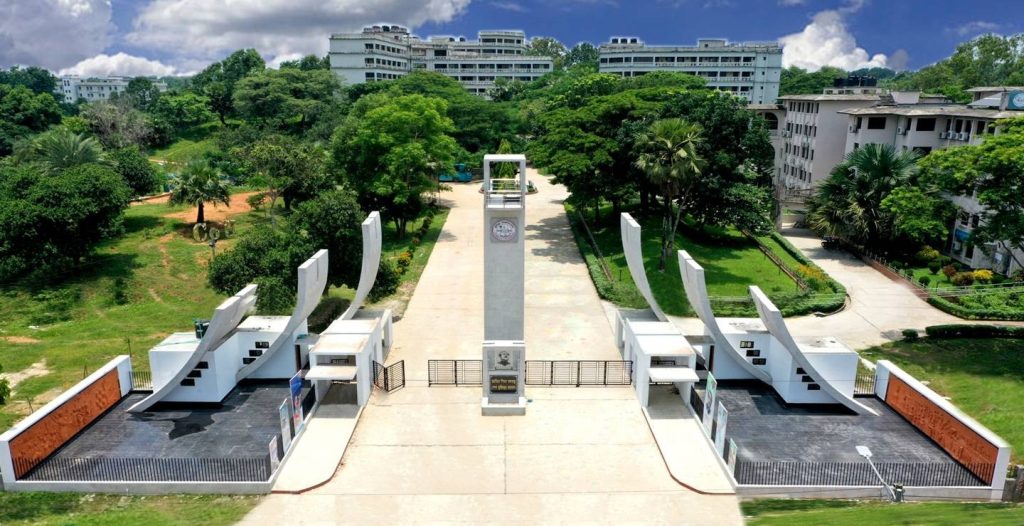
Comilla University Comilla University About Comilla University (CoU), located in Kotbari, Comilla, is a leading public university in Bangladesh, established in 2006. The university is dedicated to academic excellence, research, and innovation, offering students a nurturing environment for personal and professional growth. CoU provides undergraduate, postgraduate, and doctoral programs across various faculties, including Arts and Humanities, Science, Business Studies, and Social Science. With its serene campus surrounded by lush greenery, the university offers modern facilities such as well-equipped laboratories, libraries, and ICT support to enhance the learning experience. The university emphasizes extracurricular activities, fostering creativity and leadership among students through clubs, cultural programs, and sports. Its commitment to producing skilled graduates and fostering a culture of research aligns with the needs of a globalized world. CoU continues to thrive as a center of knowledge, shaping the future leaders of Bangladesh while upholding its values of inclusivity and excellence. Basic Info Official Name – Comilla University Establish Year- 2006 Official Website Link – www.cou.ac.bd Official Facebook Link- Address- Comilla University, Cumilla-3506, Bangladesh Comilla University Faculties, Departments, Courses, Duration, and Fees Comilla University (CoU) offers diverse academic programs across several faculties, providing quality education in both theoretical and practical disciplines. Below is an overview of the faculties, departments, courses, duration, and fee structure. Faculties and Departments 1. Faculty of Science Departments: Mathematics Physics Chemistry Statistics Computer Science and Engineering (CSE) Information and Communication Technology (ICT) 2. Faculty of Arts and Humanities Departments: English Bangla Archaeology 3. Faculty of Social Science Departments: Economics Public Administration Anthropology Mass Communication and Journalism (MCJ) Political Science 4. Faculty of Business Studies Departments: Accounting and Information Systems (AIS) Management Studies Marketing Finance and Banking Courses and Duration Undergraduate Programs Degree Offered: Bachelor’s degrees (e.g., BSc, BA, BBA) Duration: 4 years (8 semesters) Popular Courses: BSc in Computer Science and Engineering, Mathematics BBA in Finance, Marketing BA in English, Bangla Postgraduate Programs Degree Offered: Master’s degrees (e.g., MSc, MA, MBA) Duration: 1–2 years (2–4 semesters) Popular Programs: MSc in Mathematics, Chemistry MA in English, Bangla MBA in Business Administration PhD Programs Duration: 3–5 years Fields Available: Research opportunities are available in various disciplines like Science, Humanities, and Business. Fee Structure As a public university, Comilla University maintains an affordable fee structure: Undergraduate Programs Admission Fee: Approximately BDT 8,000–10,000 (one-time). Tuition Fee: BDT 1,500–2,500 per semester for general programs (Arts and Social Sciences). BDT 3,000–5,000 per semester for Science and Engineering programs. Postgraduate Programs Admission Fee: Around BDT 10,000–12,000 (one-time). Tuition Fee: BDT 2,500–3,500 per semester for general programs. BDT 4,000–6,000 per semester for Science and Business programs. PhD Programs Research Fee: Approximately BDT 40,000–50,000 annually. Other Fees Examination Fee: BDT 500–1,000 per semester. Hostel Fee: Around BDT 1,500 per semester, excluding food costs. Facilities and Special Features Scholarships and Financial Aid: Merit-based and need-based scholarships for deserving students. Government scholarships and stipends for underprivileged students. Modern Infrastructure: Advanced laboratories, research facilities, and digital libraries. ICT services for e-learning and administrative tasks. Extracurricular Activities: Student clubs for cultural, academic, and social development. Sports and recreational facilities. Residential Facilities: Separate dormitories for male and female students. Comilla University continues to expand its academic and research offerings, ensuring that students are equipped with the skills and knowledge to excel in their respective fields. With affordable fees and a focus on innovation, CoU is a top choice for higher education in Bangladesh. Comilla University Admission Process Comilla University conducts a transparent and competitive admission process for undergraduate, postgraduate, and doctoral programs. Here is a detailed overview of the steps involved: Undergraduate Admission Process Eligibility Criteria Academic Requirements: Candidates must have completed SSC (or equivalent) and HSC (or equivalent) examinations. Minimum GPA: Science Group: A total GPA of 8.00 (including optional subjects) in SSC and HSC. Humanities and Business Groups: A total GPA of 7.00 (including optional subjects). Unit-Specific Eligibility: Unit A (Science): Requires a strong background in science-related subjects. Unit B (Arts and Humanities): Open to humanities group students. Unit C (Business Studies): Applicants must have a commerce background. Application Process Online Application: Visit the official admission portal (admission.cou.ac.bd). Fill out the application form with personal details, academic information, and preferred unit selection. Application Fee: Pay the application fee (approximately BDT 800–1,000) through mobile banking services like bKash, Nagad, or Rocket. Admission Test: Unit-Based Exams: The tests are based on subjects related to the chosen unit, including Bangla, English, Mathematics, General Knowledge, and Science. Duration: 1–1.5 hours. Merit List and Selection: Results are published on the university website. Admission is based on the combined score of SSC, HSC, and the admission test. Document Verification and Enrollment: Shortlisted candidates must provide original academic documents, photographs, and quota-related certificates (if applicable). Pay the admission and semester fees to confirm enrollment. Postgraduate Admission Process Eligibility Criteria Master’s Programs: A relevant bachelor’s degree from a recognized institution. Minimum CGPA of 2.50 (out of 4.00) or equivalent. PhD Programs: A master’s degree in a relevant field. Research experience or publications are often required. Application Process Application Form Submission: Obtain the application form from the university website or admission office. Submit with required documents, including transcripts, certificates, and a statement of purpose. Entrance Exam/Interview: Master’s candidates may need to take a written test. PhD candidates typically present their research proposal during an interview. Final Selection: Selected candidates complete enrollment by paying tuition fees and submitting documents. Important Dates Undergraduate Admission Circular: Published in August–September. Application Deadline: Typically 2–3 weeks after the announcement. Admission Test: Conducted in October–November. Postgraduate Admissions: Usually announced in January and July. Quota System Seats are reserved for: Freedom fighter descendants. Indigenous students. Physically challenged individuals. Documents Required for Admission Academic certificates (SSC, HSC, or equivalent). Mark sheets/transcripts. Recent passport-sized photographs. National ID card or birth certificate. Payment receipt for the application fee. Quota certificates (if applicable). Tips for Applicants Prepare Thoroughly: Focus on unit-specific subjects for the admission test. Stay Updated: Regularly check the university’s official website and notice board. Quota Documentation: Ensure all quota-related documents are accurate and complete. Apply Early: Avoid
Jagannath University (JnU) – Admission
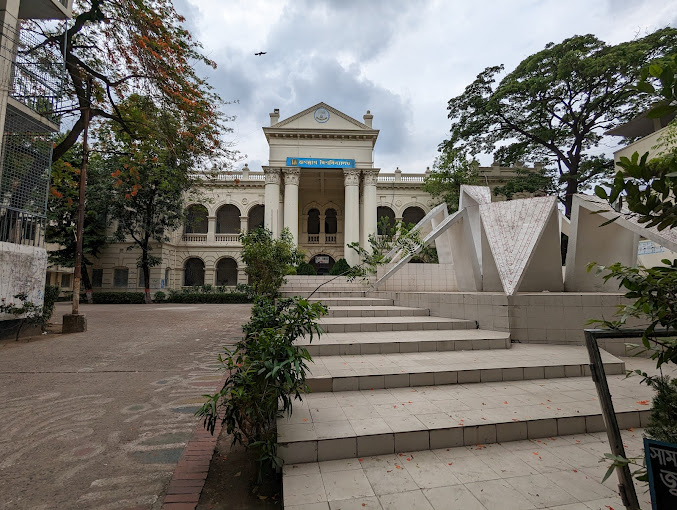
Jagannath University Jagannath University About Jagannath University (JnU), located in the heart of Dhaka, Bangladesh, is a premier public institution renowned for its academic excellence and historic legacy. Established in 2005, the university evolved from the illustrious Jagannath College, which was founded in 1884. JnU offers a wide range of undergraduate, postgraduate, and doctoral programs across diverse disciplines, including arts, science, business, law, and social sciences. The university is committed to fostering innovation, critical thinking, and research through its state-of-the-art facilities and dedicated faculty members. With over 30 departments and several specialized research centers, JnU serves as a hub for intellectual growth and professional development. JnU’s central location provides students with access to various cultural and professional opportunities, enhancing their academic and personal experiences. By blending a rich history with modern education, Jagannath University continues to shape the future leaders of Bangladesh. Basic Info Official Name – Jagannath University Establish Year- 1884 (College), 2005 (University) Official Website Link – jnu.ac.bd Official Facebook Link- Address- Jagannath University, Dhaka, Bangladesh Jagannath University Faculties, Departments, Courses, Duration, and Fees Jagannath University (JnU) is a prestigious public university in Bangladesh, offering diverse academic programs across various disciplines. Below is an overview of the faculties, departments, courses, duration, and fee structure. Faculties and Departments 1. Faculty of Arts Departments: Bengali English History Philosophy Islamic History and Culture Islamic Studies 2. Faculty of Science Departments: Physics Chemistry Mathematics Botany Zoology Geography and Environment 3. Faculty of Business Studies Departments: Accounting and Information Systems Management Studies Marketing Finance 4. Faculty of Social Science Departments: Sociology Political Science Economics Social Work Anthropology Mass Communication and Journalism 5. Faculty of Law Department: Law 6. Faculty of Life and Earth Sciences Departments: Microbiology Biochemistry and Molecular Biology Psychology 7. Faculty of Fine Arts Departments: Music Drama Fine Arts 8. Faculty of Education and Research Department: Education 9. Faculty of Engineering and Technology Departments: Computer Science and Engineering (CSE) Information and Communication Technology (ICT) Courses and Duration Undergraduate Programs Degree Offered: Bachelor’s (e.g., BA, BSc, BBA, LLB) Duration: 4 years (8 semesters) Notable Programs: BA in English, History BSc in Microbiology, Chemistry, CSE BBA in Finance, Marketing Postgraduate Programs Degree Offered: Master’s (e.g., MA, MSc, MBA, LLM) Duration: 1–2 years (2–4 semesters) Programs Include: MA in Bengali, English MSc in Biochemistry, Mathematics MBA in Business Administration PhD Programs Duration: 3–5 years Fields: Available in most disciplines, focusing on advanced research. Fee Structure Jagannath University is a public institution, making education affordable for students. Undergraduate Programs Admission Fee: Approximately BDT 10,000–12,000 (one-time). Tuition Fee: BDT 2,000–3,000 per semester for general faculties (e.g., Arts, Social Science). BDT 5,000–7,000 per semester for Science, Engineering, and Business programs. Postgraduate Programs Admission Fee: Around BDT 15,000–20,000 (one-time). Tuition Fee: BDT 4,000–6,000 per semester for master’s programs. PhD Programs Research Fee: Around BDT 50,000–60,000 annually. Hostel Fees Accommodation: Approximately BDT 1,500–2,000 per semester. Monthly mess charges: BDT 3,000–4,000. Special Features Scholarships: Merit-based and need-based scholarships for deserving students. Modern Infrastructure: Advanced laboratories, libraries, and ICT facilities. Interdisciplinary Opportunities: Courses encourage collaboration across faculties. Extracurricular Activities: Clubs for music, drama, debate, and sports. Jagannath University’s wide-ranging academic programs and affordable fee structure make it a top choice for students in Bangladesh. Jagannath University Admission Process Jagannath University follows a systematic and competitive admission process for its undergraduate, postgraduate, and doctoral programs. Below is a detailed guide to the process: Undergraduate Admission Process Eligibility Criteria Academic Requirements: Candidates must have passed SSC (or equivalent) and HSC (or equivalent) exams. Minimum GPA Requirements: GPA 3.50 (out of 5.00) in both SSC and HSC separately. A total GPA of 8.00 or higher (including optional subjects) for science group candidates. A slightly lower GPA may be accepted for arts and commerce groups. Group-Specific Requirements: Science group students can apply for all faculties. Arts and commerce students can apply to specific faculties like Social Science, Arts, and Business Studies. Application Process Online Registration: Visit the university’s official admission portal (admission.jnu.ac.bd). Create an account with a valid email address and phone number. Select the unit (A, B, C, or D) based on your desired faculty. Application Fee: Pay the application fee (approximately BDT 800–1,000) via mobile banking services like bKash, Rocket, or Nagad. Admission Test: JnU conducts a unit-wise written admission test. Each unit corresponds to specific faculties: Unit A: Science Unit B: Arts and Social Sciences Unit C: Business Studies Unit D: Interdisciplinary programs Subjects include General Knowledge, English, Mathematics, and Science, depending on the unit. Merit List and Selection: A merit list is prepared based on admission test scores and HSC/SSC results. Separate quota-based merit lists are also published (e.g., freedom fighters, indigenous students). Document Submission and Final Admission: Shortlisted candidates must submit original academic certificates, transcripts, photographs, and quota certificates (if applicable). Pay the admission fee and complete enrollment procedures. Postgraduate Admission Process Eligibility Criteria Master’s Programs: A relevant bachelor’s degree with a minimum CGPA of 2.50 (out of 4.00) or equivalent. Additional requirements may vary by department. PhD Programs: A relevant master’s degree and substantial academic or professional experience. A research proposal aligned with the department’s focus. Application Process Application Form: Obtain the form online or from the university’s admission office. Submit the filled form along with academic certificates, transcripts, and other required documents. Entrance Test/Interview: Master’s candidates may need to appear for a written test. PhD candidates are usually required to present their research proposal during an interview. Final Admission: Shortlisted candidates must complete their enrollment by paying the required fees and submitting original documents. Important Dates Undergraduate Admission Circular: Published annually in August–September. Application Deadline: Typically 2–3 weeks after the announcement. Admission Test: Conducted in October–November. Postgraduate Admission Circular: Published twice a year, in January and July. Quota System Jagannath University reserves seats for: Children of freedom fighters. Indigenous students. Physically disabled students. Documents Required for Admission Academic certificates (SSC, HSC, or equivalent). Transcripts/mark sheets. Recent passport-sized photographs. National ID card or birth certificate. Payment slip for application fee. Quota certificates (if applicable). Tips for Prospective Students
Noakhali Science & Technology University (NSTU) – Admission
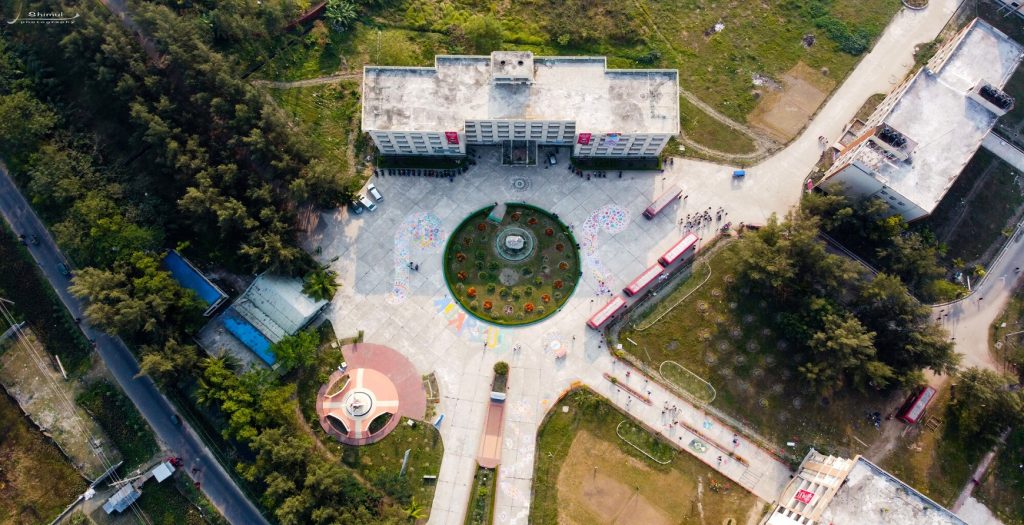
Noakhali Science & Technology University (NSTU) About Noakhali Science & Technology University Noakhali Science and Technology University (NSTU), located in the scenic coastal region of Noakhali, Bangladesh, is a prominent public university dedicated to advancing education, research, and innovation. Established in 2001, NSTU has quickly gained recognition for its focus on science, technology, and interdisciplinary learning. The university offers a wide range of undergraduate, postgraduate, and doctoral programs across its multiple faculties, including Science, Engineering, Business Studies, Social Science, and Life Sciences. With modern facilities, well-equipped laboratories, a rich library, and a commitment to academic excellence, NSTU provides an environment conducive to holistic student development. NSTU is also engaged in cutting-edge research, promoting sustainable development and addressing regional and global challenges. The university emphasizes community engagement and industry collaboration, ensuring graduates are equipped with both theoretical knowledge and practical skills. Its vibrant campus life and dedication to innovation make NSTU a leading institution in higher education. Basic Info Official Name – Noakhali Science & Technology University Establish Year- 2001 Official Website Link – nstu.edu.bd Official Facebook Link- Address- Sonapur Road, Noakhali 3814 NSTU University Faculties, Departments, Courses, Duration, and Fees Noakhali Science and Technology University (NSTU) is a multidisciplinary public university offering quality education across various fields of study. Below is a detailed overview of its faculties, departments, courses, duration, and fee structure. Faculties and Departments NSTU has several faculties, each with specialized departments offering undergraduate and postgraduate programs. 1. Faculty of Science Departments: Mathematics Statistics Physics Chemistry Environmental Science and Disaster Management 2. Faculty of Engineering and Technology Departments: Computer Science and Telecommunication Engineering (CSTE) Information and Communication Engineering (ICE) Applied Chemistry and Chemical Engineering (ACCE) Electrical and Electronic Engineering (EEE) 3. Faculty of Life Sciences Departments: Biotechnology and Genetic Engineering (BGE) Microbiology Fisheries and Marine Science (FIMS) Biochemistry and Molecular Biology (BMB) 4. Faculty of Business Studies Departments: Business Administration Tourism and Hospitality Management 5. Faculty of Social Science and Humanities Departments: Economics Sociology English 6. Faculty of Education Sciences Departments: Educational Administration Courses and Duration Undergraduate Programs Degree Offered: Bachelor’s (e.g., BSc, BBA, BA) Duration: 4 years (8 semesters) Programs Include: BSc in Computer Science and Telecommunication Engineering BSc in Fisheries and Marine Science Bachelor of Business Administration (BBA) Postgraduate Programs Degree Offered: Master’s (e.g., MSc, MBA, MA) Duration: 1–2 years (2–4 semesters) Programs Include: MSc in Biotechnology and Genetic Engineering MBA in Business Administration Doctoral Programs Degree Offered: Doctor of Philosophy (PhD) Duration: 3–5 years Fields: Research-oriented fields like Life Sciences, Engineering, and Social Sciences. Fee Structure NSTU, as a public university, offers affordable education. Here’s an estimate of the costs: Undergraduate Programs Admission Fee: Approximately BDT 10,000–12,000 (one-time). Tuition Fee: BDT 1,500–3,000 per semester, depending on the department. Lab/Practical Fees: Additional charges of BDT 1,000–2,000 per semester for science and engineering courses. Postgraduate Programs Admission Fee: Around BDT 15,000–20,000 (one-time). Tuition Fee: BDT 4,000–6,000 per semester for master’s programs. PhD Programs Annual Research Fee: Around BDT 40,000–60,000, depending on the research field. Hostel Fees Accommodation charges: BDT 1,500–2,500 per semester. Mess charges: Approximately BDT 3,000–4,000 per month. Key Features Scholarships: Merit-based and need-based financial aid for deserving students. Modern Infrastructure: Advanced laboratories, library resources, and ICT facilities. Interdisciplinary Approach: Encourages collaboration across faculties for holistic learning. Research Opportunities: Cutting-edge research in biotechnology, marine science, and disaster management. NSTU’s robust academic offerings, affordable fees, and focus on innovation make it a leading choice for students across Bangladesh. NSTU University Admission Process The admission process at NSTU is competitive and follows the guidelines set by the university and the University Grants Commission (UGC) of Bangladesh. Below is a step-by-step guide for undergraduate and postgraduate admissions. Undergraduate Admission Process Eligibility Criteria Academic Requirements: Candidates must have passed SSC (or equivalent) and HSC (or equivalent) exams. Minimum GPA requirements: GPA 4.00 (out of 5.00) in SSC and HSC individually, with a total GPA of at least 8.00 (including optional subjects). For science group applicants: At least GPA 4.00 in Mathematics, Physics, Chemistry, and Biology (as applicable). Group-Specific Requirements: Science students can apply to all faculties. Commerce and Humanities students are eligible for specific programs such as Business Administration, Economics, or English. Application Process Online Application: Visit the official NSTU admission portal (www.nstu.edu.bd). Register using a valid mobile number and email address. Fill in personal details, academic qualifications, and desired program preferences. Application Fee: Pay the non-refundable application fee (approximately BDT 1,000–1,200) through mobile banking services like bKash, Rocket, or Nagad. Admission Test: NSTU conducts a written admission test categorized into groups (A, B, C, etc.) based on faculties. Test subjects include Mathematics, Physics, Chemistry, Biology, English, and General Knowledge, depending on the faculty. Total marks and time duration vary by group. Merit List and Selection: A merit list is prepared based on the admission test score. Separate merit lists for quota categories (e.g., freedom fighter, indigenous students, disabled students) are published. Final Admission: Selected candidates must appear in person with original documents (certificates, transcripts, photographs) and complete the admission process by paying the required fees. Postgraduate Admission Process Eligibility Criteria Master’s Programs: A relevant bachelor’s degree with a minimum CGPA of 2.50 (out of 4.00) or equivalent. Specific departments may require subject prerequisites or additional qualifications. PhD Programs: A relevant master’s degree with strong academic and research credentials. Application Process Application Form: Obtain the application form from the NSTU website or admission office. Fill in details and submit with required documents, including transcripts, certificates, and research proposals (for PhD candidates). Admission Test/Interview: Master’s candidates may need to take a written test. PhD candidates are usually interviewed and required to present a research proposal. Admission Confirmation: Selected candidates must complete the admission process by paying the fees and submitting original documents. Important Dates Undergraduate Admission Circular: Released in September–October annually. Application Deadline: Typically 2–3 weeks after the announcement. Admission Test: Conducted in November–December. Postgraduate Admission Circular: Published twice a year (January and July). Quota System NSTU reserves a percentage of seats for specific groups, including: Children of freedom fighters.
Dhaka University of Engineering & Technology (DUET) – Admission, Result, Notice, Fee & Facilities
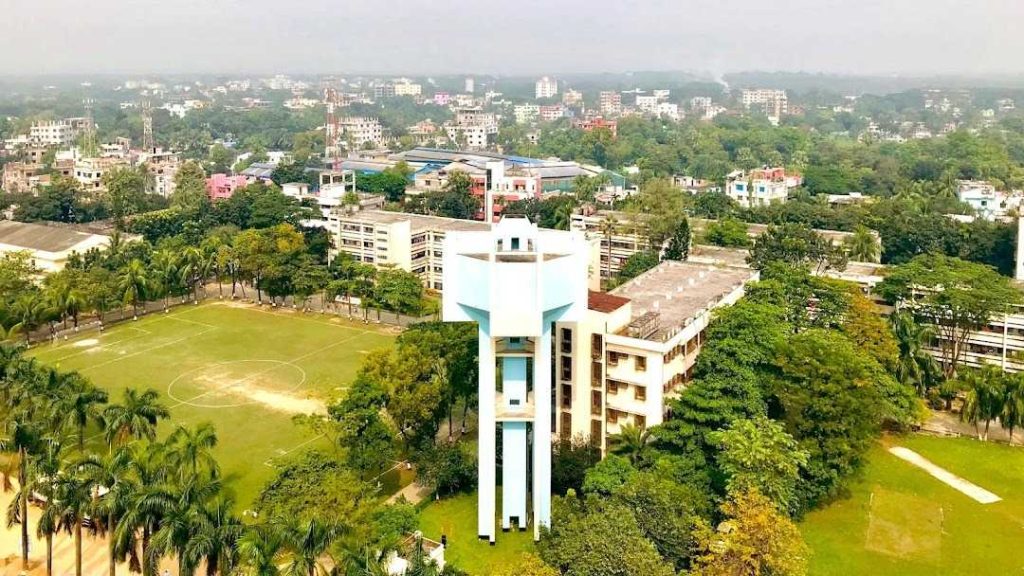
Dhaka University of Engineering & Technology (DUET) Dhaka University of Engineering & Technology About Dhaka University of Engineering & Technology (DUET), located in Gazipur, is one of the premier public engineering universities in Bangladesh. Originally established as a college in 1980, it was upgraded to a university in 2000. DUET specializes in providing higher education and research opportunities exclusively for diploma engineers, making it a unique institution in the country. The university offers undergraduate, postgraduate, and doctoral programs in various engineering and technology disciplines, including Civil, Mechanical, Electrical, and Computer Science Engineering. DUET is committed to fostering innovation, research excellence, and technical expertise, catering to the needs of both the national and global workforce. Spread across a well-designed campus, DUET features modern classrooms, state-of-the-art laboratories, a rich central library, and research facilities. Its emphasis on practical knowledge and industry collaboration ensures that graduates are highly skilled and competitive in their respective fields, contributing significantly to the development of the engineering sector in Bangladesh. Basic Info Official Name – Dhaka University of Engineering & Technology Establish Year- 2000 Official Website Link – www.duet.ac.bd Official Facebook Link- Address- Dhaka University of Engineering & Technology, Gazipur, Gazipur-1707, Bangladesh DUET University Faculties, Departments, Courses, Duration, and Fees DUET is a specialized public engineering university in Bangladesh, offering academic programs tailored for diploma engineers seeking higher education. Below is a detailed overview of the university’s faculties, departments, courses, durations, and fee structures. Faculties and Departments DUET is organized into several faculties, each offering diverse engineering and technology disciplines: Faculty of Civil Engineering Departments: Civil Engineering (CE) Architecture (Arch) Faculty of Electrical and Electronic Engineering Departments: Electrical and Electronic Engineering (EEE) Computer Science and Engineering (CSE) Electronics and Communication Engineering (ECE) Faculty of Mechanical Engineering Departments: Mechanical Engineering (ME) Textile Engineering (TE) Industrial and Production Engineering (IPE) Faculty of Engineering and Applied Science Departments: Chemical and Food Engineering (CFE) Materials and Metallurgical Engineering (MME) Courses and Duration Undergraduate Programs Degree Offered: Bachelor of Science in Engineering (BSc Engg) Duration: 4 years (8 semesters) Entry Requirements: Diploma in a related engineering field with a minimum CGPA of 3.00 (out of 4.00). Competitive admission test. Departments: Civil Engineering, Electrical and Electronic Engineering, Mechanical Engineering, and others. Postgraduate Programs Degrees Offered: Master of Science in Engineering (MSc Engg) Master of Engineering (MEng) Master of Philosophy (MPhil) Duration: 1–2 years Eligibility: A relevant Bachelor’s degree with a minimum CGPA of 2.50 (out of 4.00). Doctoral Programs Degree Offered: Doctor of Philosophy (PhD) Duration: 3–5 years, depending on the research. Eligibility: A Master’s degree in a relevant field. Fee Structure DUET is a public university offering affordable education, making it accessible to students from various economic backgrounds. Undergraduate Programs Admission Fee: Approximately BDT 10,000–15,000 (one-time). Tuition Fee: BDT 3,000–5,000 per semester. Other Fees: Examination fees, library fees, and lab fees: BDT 2,000–3,500 per semester. Postgraduate Programs Admission Fee: Around BDT 20,000–25,000 (one-time). Tuition Fee: BDT 5,000–7,000 per semester. PhD Programs Annual Research Fee: BDT 50,000–70,000, depending on the research topic. Additional Charges: Thesis submission and viva fees. Hostel Fees Accommodation Fee: BDT 1,500–2,000 per semester. Mess Charges: Based on actual expenses, typically BDT 2,500–4,000 per month. Key Features of DUET Practical Learning Environment: Focus on hands-on training and industry-relevant skills. Modern Infrastructure: Advanced laboratories, computer facilities, and research centers. Scholarships: Merit-based scholarships and financial aid for deserving students. Collaboration with Industry: Strong ties with industries to ensure graduates meet professional demands. DUET stands out for its unique approach to higher education, exclusively designed for diploma engineers, providing them with advanced skills and opportunities for career advancement. DUET University Admission Process DUET is one of the most sought-after universities for diploma engineers aspiring to pursue higher education in engineering and technology. The admission process is competitive, merit-based, and involves several stages to ensure only the best candidates are selected. Undergraduate Admission Process Eligibility Criteria Academic Requirements: Candidates must have completed a 4-year Diploma in Engineering or an equivalent diploma from an institution recognized by the Bangladesh Technical Education Board (BTEB). A minimum CGPA of 3.00 (out of 4.00) in the diploma is required. Additional Requirements: Must meet specific subject prerequisites relevant to the department applied for. No more than a 5-year gap between completing the diploma and applying for admission. Application Procedure Online Application: Visit the official DUET admission portal (www.duet.ac.bd). Fill out the application form with personal, academic, and other required information. Upload necessary documents, including scanned copies of the diploma certificate, transcripts, and a passport-sized photograph. Application Fee: Pay the non-refundable application fee (approximately BDT 1,500–2,000) via mobile banking or designated banks. Admission Test: Test Format: Multiple-choice questions (MCQs) covering Mathematics, Physics, Chemistry, and English. The exam evaluates problem-solving skills and technical knowledge relevant to engineering disciplines. Total marks and time duration vary depending on the department. Merit List: Based on admission test scores, a merit list is published. Special quotas are available for freedom fighters’ children, indigenous students, and candidates with disabilities. Final Admission: Selected candidates must complete the admission formalities by submitting original documents and paying the required fees. Postgraduate Admission Process DUET offers master’s and doctoral programs for graduates seeking advanced education in engineering and research. Eligibility Criteria Master’s Programs: Bachelor’s degree in a relevant field with a minimum CGPA of 2.50 (out of 4.00) or equivalent. PhD Programs: A master’s degree in a relevant discipline. In exceptional cases, candidates with excellent academic records may directly enroll in a PhD program after a bachelor’s degree. Application Procedure Application Form: Download the application form from DUET’s website or collect it from the university. Complete and submit the form along with academic transcripts, certificates, a research proposal (for PhD), and other necessary documents. Admission Test/Interview: Master’s applicants may need to take a written test. PhD candidates typically undergo an interview and present their research proposals. Admission Confirmation: After selection, candidates must pay the admission fees and submit original documents. Important Dates Undergraduate Admission Circular: Released in May-June annually. Application Deadline: Typically 2–3 weeks after the announcement. Admission Test:
Khulna University of Engineering & Technology (KUET) – Admission, Result, Notice, Fee & Facilities
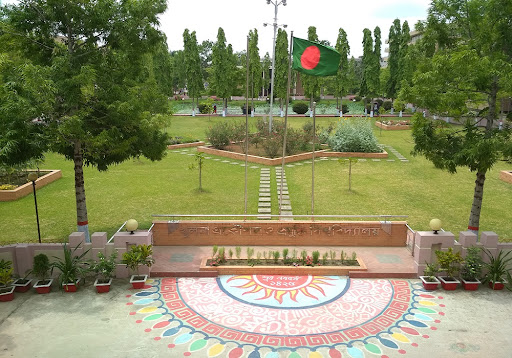
Khulna University of Engineering & Technology (KUET) Khulna University of Engineering & Technology (KUET) About Khulna University of Engineering & Technology (KUET) is a leading public engineering university in Bangladesh, recognized for its excellence in education, research, and innovation. Established in 1967 as Khulna Engineering College and upgraded to a university in 2003, KUET is located in Khulna, a vital industrial hub in the country. The university offers undergraduate, postgraduate, and doctoral programs across various engineering, technology, and applied science disciplines. KUET is committed to fostering skilled professionals and researchers capable of addressing technological challenges and contributing to national and global development. Spread over 101 acres, the campus boasts state-of-the-art laboratories, research facilities, a well-equipped central library, and a vibrant academic environment. The university is known for its modern curriculum, experienced faculty, and industry-academia collaboration. KUET graduates are highly valued in both local and international industries for their technical expertise and innovation, solidifying its reputation as a top engineering institution in Bangladesh. Basic Info Official Name – Khulna University of Engineering & Technology (KUET) Establish Year – 2003 Official Website Link – www.kuet.ac.bd Official Facebook Link- Address – Khulna University of Engineering & Technology (KUET), Khulna-9203, Bangladesh KUET University Faculties, Departments, Courses, Duration, and Fees KUET is a prestigious engineering university offering various undergraduate, postgraduate, and doctoral programs. Below is a comprehensive overview of its faculties, departments, courses, durations, and fee structure. Faculties and Departments KUET comprises three faculties, each housing multiple departments that specialize in engineering, technology, and applied sciences: Faculty of Civil Engineering Departments: Civil Engineering (CE) Urban and Regional Planning (URP) Building Engineering and Construction Management (BECM) Faculty of Electrical and Electronic Engineering Departments: Electrical and Electronic Engineering (EEE) Computer Science and Engineering (CSE) Electronics and Communication Engineering (ECE) Biomedical Engineering (BME) Faculty of Mechanical Engineering Departments: Mechanical Engineering (ME) Industrial and Production Engineering (IPE) Energy Science and Engineering (ESE) Materials Science and Engineering (MSE) Courses and Duration Undergraduate Programs Degrees Offered: Bachelor of Science in Engineering (BSc Engg). Duration: 4 years (8 semesters). Departments: Civil Engineering, Electrical and Electronic Engineering, Mechanical Engineering, Computer Science and Engineering, and others. Postgraduate Programs Degrees Offered: Master of Science in Engineering (MSc Engg). Master of Philosophy (MPhil). Master of Engineering (MEng). Duration: 1–2 years. Doctoral Programs Degrees Offered: Doctor of Philosophy (PhD). Duration: 3–5 years, depending on the research area. Fee Structure KUET offers affordable tuition fees, making it accessible to students from all economic backgrounds. Undergraduate Programs Admission Fee: BDT 18,000–22,000 (one-time). Semester Fee: BDT 4,500–6,000 per semester. Other Charges: Lab, library, and examination fees: BDT 2,500–3,500 per semester. Postgraduate Programs Admission Fee: BDT 20,000–25,000 (one-time). Tuition Fee: BDT 6,000–8,000 per semester. PhD Programs Research Fee: BDT 50,000–80,000 annually. Additional Charges: Thesis defense and submission fees. Accommodation Fees Hostel Fee: BDT 1,500–2,500 per semester. Mess Charges: Vary based on actual expenses. Key Features World-Class Facilities: Advanced laboratories, research centers, and workshops. A central library with access to digital resources. Scholarships and Financial Aid: Merit-based scholarships for high-performing students. Financial aid for economically disadvantaged students. Industry Collaboration: Strong ties with industries for internships, training, and research opportunities. Modern Curriculum: Designed to meet the latest industry and research needs. KUET stands out as a center of academic and professional excellence, providing students with the knowledge and skills needed to thrive in the competitive world of engineering and technology. KUET University Admission Process KUET follows a competitive and merit-based admission process for undergraduate and postgraduate programs, ensuring that only the most qualified candidates are selected. Below is a detailed overview of the admission process. Undergraduate Admission Process Eligibility Criteria Educational Qualifications: Candidates must have passed SSC and HSC (or equivalent) examinations with a science background. Minimum GPA requirements: SSC and HSC individually: 4.00 or above (out of 5.00). Combined GPA: 8.00 or above, including optional subjects. Physics, Chemistry, Mathematics, and English must be compulsory subjects at the HSC level. Additional Criteria: Specific minimum marks in Mathematics, Physics, Chemistry, and English as determined by KUET. Application Process Online Application: Visit the official KUET admission portal: www.kuet.ac.bd. Fill out the application form and upload necessary documents (academic transcripts, passport-sized photo, and signature). Pay the application fee (approximately BDT 1,000–1,500) through designated banking or mobile payment systems. Admission Test: Subjects Covered: Mathematics, Physics, Chemistry, and English. Test Format: Multiple-choice questions designed to assess analytical and problem-solving skills. Merit List: KUET prepares a merit list based on admission test scores and academic performance. Quotas are available for underprivileged groups, freedom fighters’ children, and tribal students. Final Admission: Selected candidates must complete the admission process by submitting original academic certificates, transcripts, and other documents. Admission fee payment finalizes enrollment. Postgraduate Admission Process KUET offers Master’s and Doctoral programs for advanced studies and research in engineering and technology. Eligibility Criteria Master’s Programs: A Bachelor’s degree in the relevant field with a minimum CGPA of 2.50 (out of 4.00) or equivalent. PhD Programs: A Master’s degree in a relevant discipline is required. Exceptional Bachelor’s graduates may be considered for direct PhD admission. Application Process Online or Offline Application: Download and complete the application form from KUET’s website. Submit the form along with academic transcripts, research proposals (if applicable), and a passport-sized photo. Pay the application fee (typically BDT 2,000–3,000). Entrance Test/Interview: Candidates may need to appear for a written test or interview, depending on the program. Research-oriented programs like PhD often require proposal presentations. Admission Confirmation: Selected candidates must complete enrollment by submitting required documents and paying the program fees. Important Dates Undergraduate Admission Circular: Published in September-October. Application Deadline: Typically 2–3 weeks after the circular is issued. Admission Test: Conducted in October-November. Results Announcement: Within 1–2 weeks after the test. Final Admission: Completed by December. Quota System KUET reserves seats for specific groups as per government policies: Freedom fighters’ children. Tribal and indigenous students. Students with disabilities. Tips for Admission Prepare Thoroughly: Focus on Mathematics, Physics, Chemistry, and English to perform well in the admission test. Review Past Papers: Practice previous years’ question papers to understand the